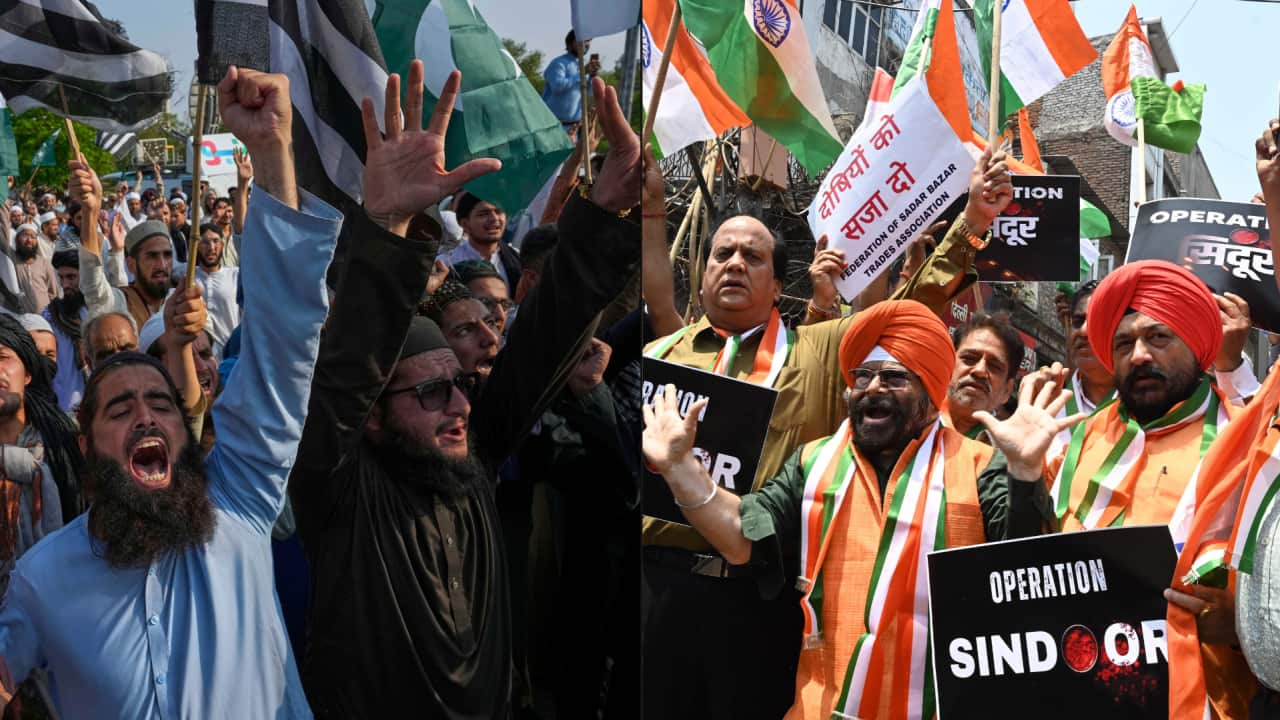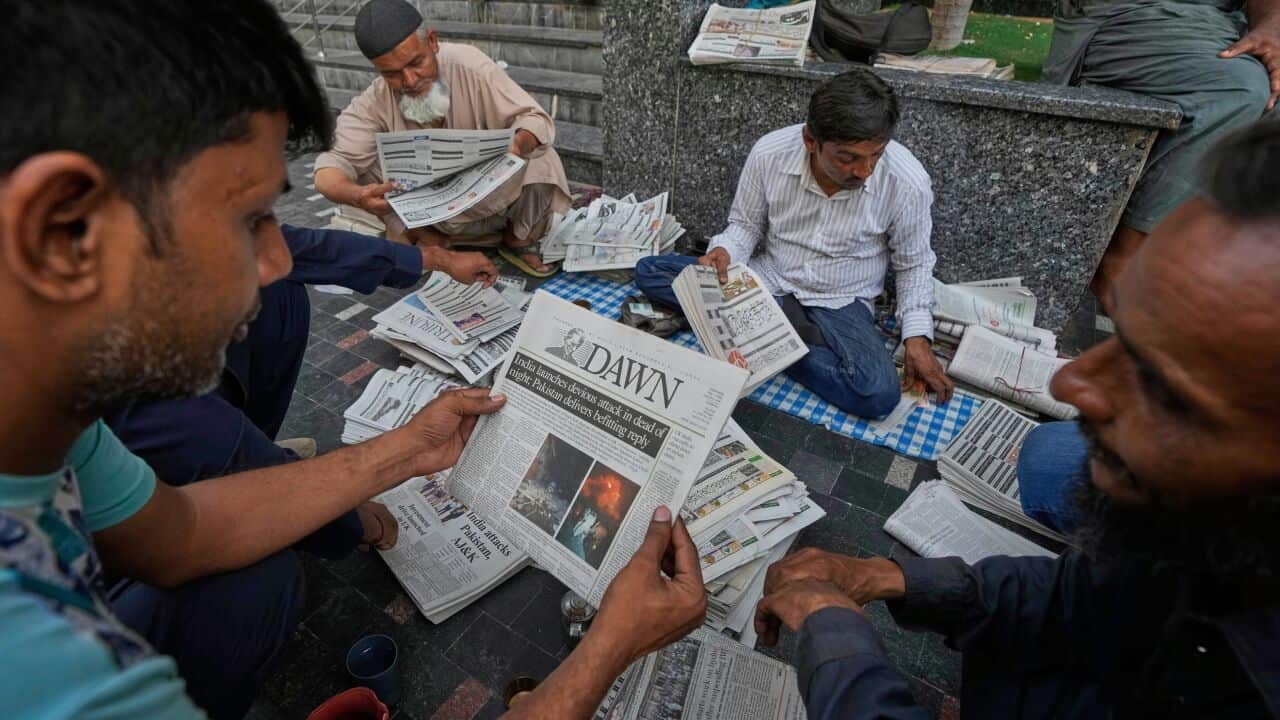At least 10,000 Australian citizens and permanent residents remain stranded in India, many of whom are crying foul, claiming the Australian government abandoned them at a time of crisis.
The travel ban imposed in April carried the threat of criminal action, including five years of imprisonment and fines of up to $66,000 for individuals defying these restrictions.
Was India singled out?
While the Morrison government emphasised that the decision was taken to ensure the safety of Australians, many Indian-Australians claimed the decision was discriminatory compared to other countries like the UK or the US. Shamit Saggar, Director at the University of Western Australia’s Public Policy Institute, said preventing Indian-origin families from returning to their lives and loved ones in Australia didn’t go down well with the community.
Shamit Saggar, Director at the University of Western Australia’s Public Policy Institute, said preventing Indian-origin families from returning to their lives and loved ones in Australia didn’t go down well with the community.

Shamit Saggar is the Director of the Public Policy Institute, University of Western Australia. Source: Supplied by UWA
“It’s unusual. It’s strange and it’s probably not in Australia’s long-term benefit at all. Australian political leaders have been genuinely courting India for many years for trade reasons, and increasingly, for security reasons. It was really quite regrettable, quite shameful to see Australian leaders all turn their back on India,” he said.
Prof Saggar said the government should have consulted the Indian diaspora in Australia, and they would have quickly seen the scale of unhappiness on the issue.
Any sense of double standards goes down very, very badly, in my view. So, anything that we do, particularly in a time of crisis, should be done even-handedly.
“The problem with the evacuation flights and not having them and suspending any plans for them for India, in the recent crisis that we saw in April and May, was that Prime Minister Scott Morrison gave the appearance of double standards,” Prof Saggar added.
His views are shared by other members of the Indian-Australian community.
“India has clearly been singled out. Why weren’t similar bans implemented for people stuck in the US or the UK or other countries at the height of their battle with the pandemic,” questioned Prashant Pandey, founder of the Indian Association in Australia, social media group. ‘Ban reflects lack of Indian representatives on Australian political landscape’
‘Ban reflects lack of Indian representatives on Australian political landscape’

The Indian travel ban also headed to court after an Australian launched a legal challenge against the restrictions. Source: EPA
Prof Saggar is of the opinion that the travel restrictions imposed on Australians of Indian heritage also reflects that there are not enough advocates for the community in Australia’s leadership.
“The Indian advocates were very silent, or they weren’t listened to at a time of crisis. So, the challenge will be to make sure that these voters are more likely to be articulate, more likely to have attention paid to them.
The problem we have, of course, is that in Australia, leadership in federal politics has very, very few people of non-European backgrounds.
“But that should change in the coming years as elected leaders wake up to the size of the Australian-Indian electorate and, crucially, those voters show that they are prepared to reward and punish political parties on the issues of the day,” he added.
Prof Saggar believes that the way Australia treats India during this time of crisis will necessarily influence the terms of their mutual relations at a trade and geopolitical level.
“India’s already very large economy is set to grow by between six and eight per cent annually for the next 20 years. That means, it is simply too big for Australia to ignore. Australia only needs to succeed in participating in a tiny slice of India’s economic future for success to be a mutual thing.
“For India to accelerate its economic growth, it needs to bring about reforms in its financial, higher education, planning and regulatory sectors. Australian firms are well placed to get involved in those areas, and the biggest opportunities will be in building a mass high-quality university system in India,” he added. ‘Uncertain relations with China should push Australia towards India’
‘Uncertain relations with China should push Australia towards India’

Photo used for representational purposes only. Source: Darshak Pandya/Pexels
The public policy expert also said that Australia’s bumpy relations with China makes it imperative for the government to focus on improving trade and geopolitical relationships with India.
“Australia already is very heavily integrated into the north Asian economies of China, Japan and South Korea. But with difficult relationships with China that go up and down on a regular basis, there’s a very strong case to make sure that Australia enjoys diversified trading relationships with all sorts of countries in the region. And India is the most prominent market of all. So, I suspect this trade relationship will be very, very important in the next few years after COVID-19.
“India sits at the heart of the Indo-Pacific region, a key arena of global geo-strategic security. But as the Western powers begin to question China’s influence over it, they should remember that India is always wary of military alliances. Bluntly speaking, and because it is increasingly sensitive right now, India does not want to be dragged into a confrontation over Taiwan,” Prof Saggar concluded.
Click here to listen to the full interview with Prof Shamit Saggar:
LISTEN TO

'Not in Australia’s long-term benefit,’ says public policy expert on government's India travel policy
SBS Punjabi
07:32
Disclaimer: The opinions expressed in this article are the personal opinions of the contributor. The facts and opinions appearing in the article do not reflect the views of SBS Punjabi.
SBS is committed to informing Australia’s diverse communities about the latest COVID-19 developments. News and information is available in 63 languages at .








